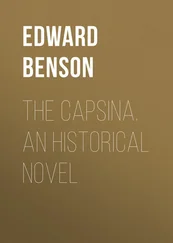Conrad Bolanden - Barbarossa; An Historical Novel of the XII Century.
Здесь есть возможность читать онлайн «Conrad Bolanden - Barbarossa; An Historical Novel of the XII Century.» — ознакомительный отрывок электронной книги совершенно бесплатно, а после прочтения отрывка купить полную версию. В некоторых случаях можно слушать аудио, скачать через торрент в формате fb2 и присутствует краткое содержание. Жанр: foreign_antique, foreign_prose, Историческая проза, на английском языке. Описание произведения, (предисловие) а так же отзывы посетителей доступны на портале библиотеки ЛибКат.
- Название:Barbarossa; An Historical Novel of the XII Century.
- Автор:
- Жанр:
- Год:неизвестен
- ISBN:нет данных
- Рейтинг книги:5 / 5. Голосов: 1
-
Избранное:Добавить в избранное
- Отзывы:
-
Ваша оценка:
- 100
- 1
- 2
- 3
- 4
- 5
Barbarossa; An Historical Novel of the XII Century.: краткое содержание, описание и аннотация
Предлагаем к чтению аннотацию, описание, краткое содержание или предисловие (зависит от того, что написал сам автор книги «Barbarossa; An Historical Novel of the XII Century.»). Если вы не нашли необходимую информацию о книге — напишите в комментариях, мы постараемся отыскать её.
Barbarossa; An Historical Novel of the XII Century. — читать онлайн ознакомительный отрывок
Ниже представлен текст книги, разбитый по страницам. Система сохранения места последней прочитанной страницы, позволяет с удобством читать онлайн бесплатно книгу «Barbarossa; An Historical Novel of the XII Century.», без необходимости каждый раз заново искать на чём Вы остановились. Поставьте закладку, и сможете в любой момент перейти на страницу, на которой закончили чтение.
Интервал:
Закладка:
Near him sat the Duchess, busied with her embroidery. Not without personal and intellectual attractions, she was sincerely attached to her husband, but the affection which he had once felt for the lovely Clemence had long since made way for other sentiments. Honoring her virtues, he could not but feel deeply mortified that he was without an heir, and to his intimate associates he had more than once hinted at the possibility of a divorce.
"Look, Clemence! what a fine boy our little Hildegarde would make," said the Duke, playing with the silken curls of the child who had glided between his knees. "He would be old enough now to play with arms, or sharpen arrows, and in a few years could fight by my side!"
"And perhaps die there, husband!"
"Our five daughters run no risk of dying a hero's death!" he replied bitterly. "Ah! I would give the half of my left hand if one of those girls were a boy!"
"Henry, do not cherish such gloomy thoughts. You make me tremble for our future!"
"Never mind! a hand for a son!" continued Henry, with growing rage. "If my death-bed could be surrounded by five sons, I should feel that my toils had not been altogether unavailing. Ah! those five young lions could complete the work which their father had begun, and their combined efforts might defy the Emperor. But it is a painful, a bitterly painful thought, that I shall die and leave to helpless girls the great work which I have so painfully achieved."
Clemence let fall her work and gazed upon her husband; despite her gentle nature and her sentiments of Christian resignation, she was much depressed by his violent outburst.
"Pardon, dear Henry!" she said; "your views are selfish ones. He who toils only for earthly fame, gives little thought to Eternity. In this world, we should be contented with the consciousness that we have always acted honestly and from noble motives!"
"A sad fate!"
"But the best, the most really meritorious! The true crown of glory is eternal and unfading! What we accomplish on earth is often valueless hereafter, for what then avails a lifetime spent in strife, and storms, and troubles! I implore you, dear husband, do not question the decrees of Providence; think less of earthly greatness, for pride leads to forgetfulness of God, and to eternal perdition!"
"You are right," said the Prince, who had listened calmly while Clemence was speaking, "if we are to measure honor's reward by what comes after death; but I maintain that I would gladly exchange some leaves of my heavenly crown, for the prospect of an earthly heir."
A slight noise was heard, the curtains were lifted, and Lanzo with a serious face entered the room.
"Whence come you, knave?"
"From the gallows, godfather!"
"What! am I the sponsor of a gallows-bird?"
"You have no reason to be ashamed of it, cousin, since it appears to be the fashion, nowadays, to hang honest people!"
"Who has been hanged?"
"Oh! just now, no one; but those who have the halter around their necks are not always the worst off. It may be that your Grace or the Emperor would send an honest citizen to execution; but, when the devil in person leads a man to the scaffold, it is another thing!"
"You are not bright to-day, Lanzo!"
"And why not, master?"
"This stupid speech about the devil leading a man to the scaffold."
"My luminous idea was a true one, though," said the jester. "Would you like me to show you one of Satan's tricks?"
"I am somewhat curious; let us see."
"Be good enough then to open wide the eyes of your understanding, for he who is blind in spirit, although carnally lucid, cannot discover the wiles of the demon. The works of his diabolical Majesty are, like Beelzebub himself, of a spiritual essence. The first and chief agent of the devil is-guess what, cousin!"
"What do you mean?"
"Pride! Whenever Satan can entangle a man in the meshes of pride, it is all over with him! Pride rises, and aspires to rise. Let us suppose that our individual is a duke, he covets the Empire; and to accomplish his purpose, would destroy every barrier to his ambition, even were it necessary to be guilty of a crime. Should he be an Emperor, he desires the power of God, and even the Pope must be his humble vassal. If you look around, cousin, you can see for yourself, that is, if your eyes are worth anything. Should the proud man have an excellent wife, whose only fault is that she has not borne him a son, the poor creature becomes a martyr, for pride has no respect for the feelings or rights of others, and only dreams of seeing his own power and glory reflected in the persons of his descendants, long after his own flesh has become the food of worms!"
The Duke started, and turned towards his wife; but Clemence seemed absorbed in her work and heedless of the fool's discourse.
"Shall I show you some more of the devil's tricks, cousin?"
"No! I have had enough for to-day!"
"His diabolical Majesty has not only snares and pitfalls to catch fools, but also executioners to hunt them up! If I mistake not, one of these gentry is about to pay you a visit, cousin! Come, I will show him to you, but take good care of yourself, noble Lion!"
The prince looked anxiously to where Lanzo pointed, for he knew that his jester often veiled really serious truths beneath the semblance of frivolity.
"Here is His Majesty's servant!" said the fool, as Rinaldo entered, with a smile.
"Forgive me, my lord, for thus disturbing your family party for a moment; I could not resist the temptation of being the messenger of good news!"
"You are welcome, my lord; and these news are?"
"That to-morrow we break camp, and march upon Milan."
"At last!" cried the soldier; "it is, indeed, good news that you bring me. Camp-life is demoralizing, and we should have finished long since with our enemies!"
"So I have urged," replied Rinaldo. "His Majesty wished at first to await the arrival of the Austrian duke, but your counsels have modified the plan. I must really admire your influence over one who is so little patient of advice or control. Your Highness is as great in the council as in the field."
[Transcriber's note: Initial text of paragraph missing-possibly "The Duke was …"] secretly flattered by this homage to his pride. "My observations have only served to develop the great military talent of the Emperor."
"With an ironical smile, scarcely perceptible around the corners of his mouth, Rinaldo answered, -
"A monarch is none the less great, because he listens to reason and follows good advice! But I have come to summon your Highness to a council of war, in which the plan of campaign against Milan is to be discussed. It will be very select, and only a few princes and prelates, who are experienced in the art of war, will be present."
"At what hour?"
"So soon as you shall have arrived?"
"Halloa, without there! my cloak!" cried the Duke.
"Oh! there is no need of such haste!" said Dassel. "Before starting, I must solicit a favor of your Highness."
"On what subject, pray?"
"Oh, a mere peccadillo! But, by your leave, I would make my confession in secret."
As they entered an adjoining room, Lanzo hurriedly concealed himself behind the hangings, as though this presumption was one of his privileges.
"What is the matter?" asked the Duke of Rinaldo, who stood before him with down-cast eyes, and an appearance of irresolution and discouragement.
"I am really a guilty man," said the Chancellor, after a moment's silence. I meant to await a more favorable occasion; but-I was an unwilling listener to your conversation with the Duchess, and much as I dislike to interfere with your domestic happiness, I have been unable to restrain myself. – That you, the most powerful prince of the Empire, should be without an heir to your glory-so mighty a tree, full of sap and vigor to remain barren-truly, it is a sad reflection!" – The Lion raised his eyes upon the Chancellor, whose face wore an expression of deep chagrin.
Читать дальшеИнтервал:
Закладка:
Похожие книги на «Barbarossa; An Historical Novel of the XII Century.»
Представляем Вашему вниманию похожие книги на «Barbarossa; An Historical Novel of the XII Century.» списком для выбора. Мы отобрали схожую по названию и смыслу литературу в надежде предоставить читателям больше вариантов отыскать новые, интересные, ещё непрочитанные произведения.
Обсуждение, отзывы о книге «Barbarossa; An Historical Novel of the XII Century.» и просто собственные мнения читателей. Оставьте ваши комментарии, напишите, что Вы думаете о произведении, его смысле или главных героях. Укажите что конкретно понравилось, а что нет, и почему Вы так считаете.












